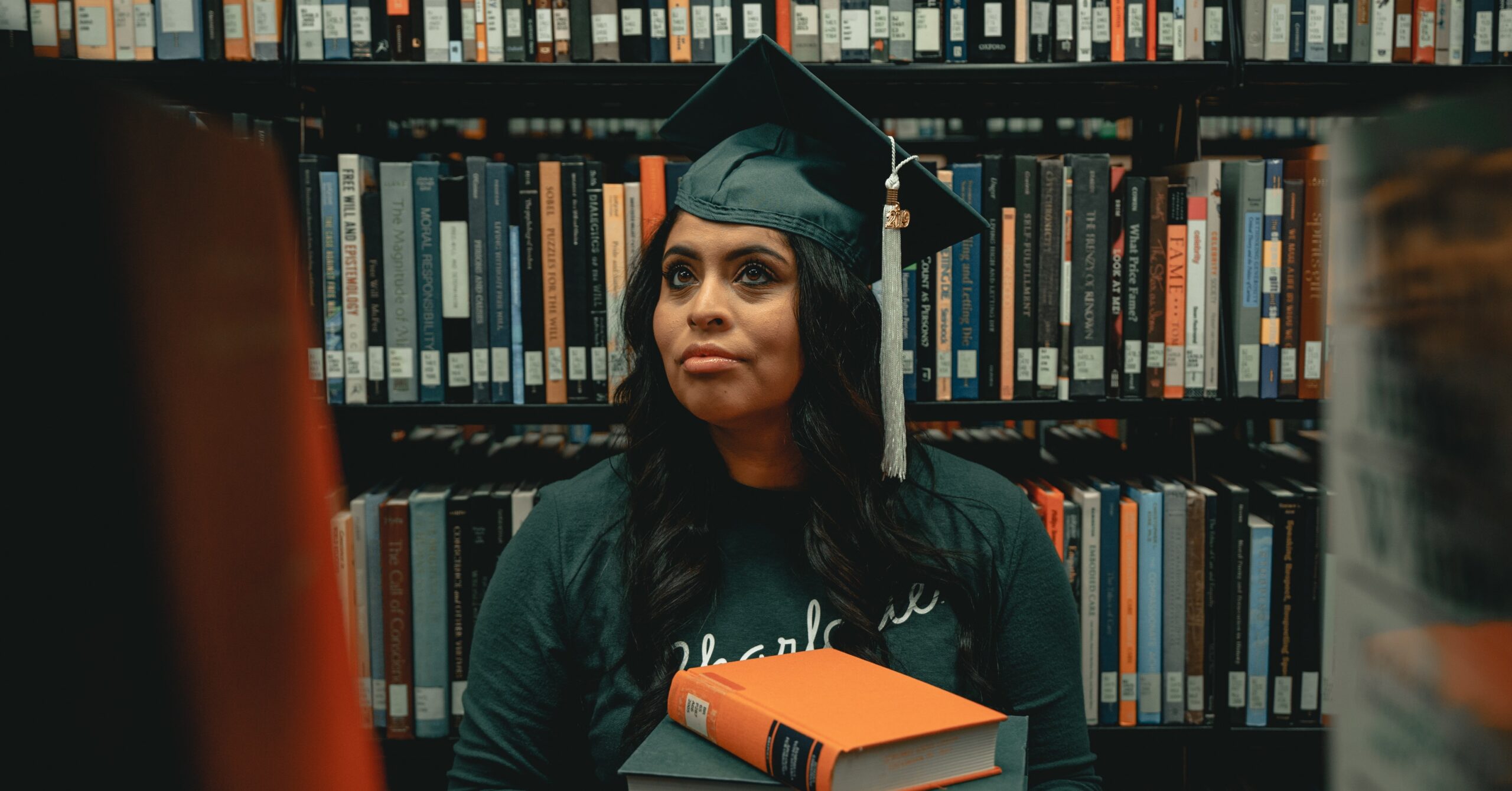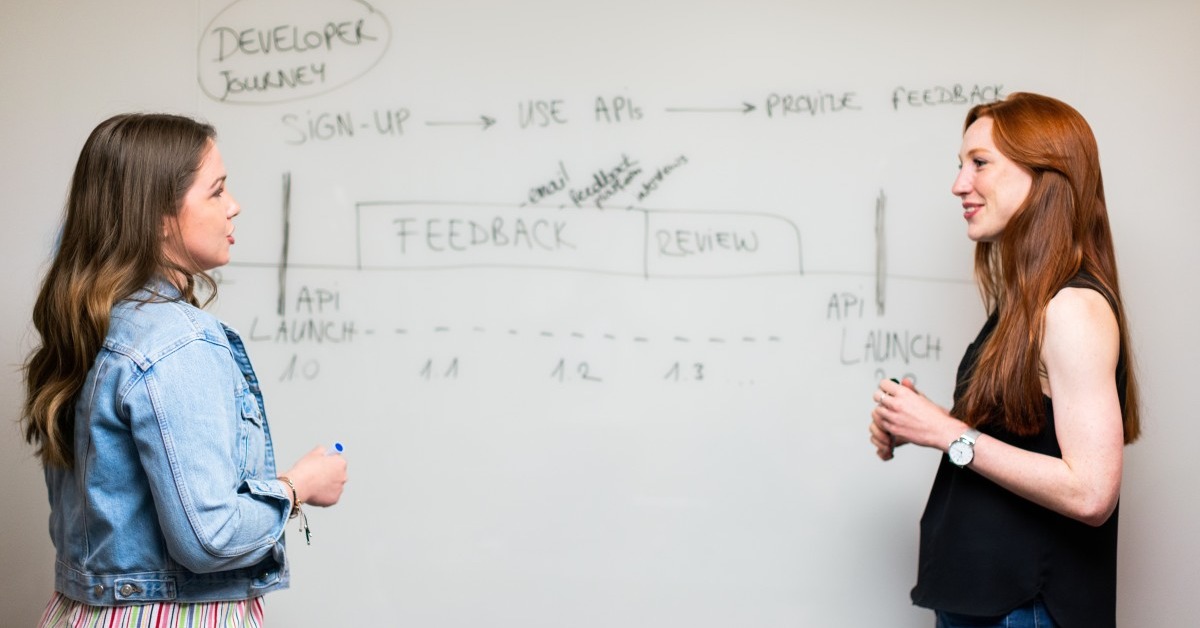
Boost Your Teacher's Salary with a Master's Degree
Even in states where a master's degree isn't required, teachers [...]
Today, children with learning differences, emotional or behavioral problems, and/or physical disabilities have the same rights to education as their typically developing peers. That wasn’t always the case, however. In fact, it wasn’t until 1975 that the Individuals with Disabilities Education Act required public schools in all states to provide eligible students with an appropriate education.
Since that law passed, special education has changed a lot, with inclusive education becoming normalized and Individualized Education Programs (IEPs) changing the landscape. What hasn’t changed is the primacy of the special education teacher in implementing quality learning in special education classrooms.
Special education teachers help their students reach their full potential, whatever that might look like. Their approach to teaching is one-of-a-kind: they use both traditional teaching methods and unconventional techniques to serve their students’ unique learning needs. For that reason, it can be challenging to nail down what a special education teacher is and what they do.
They’re more than just educators because they have to be. Teachers in special education programs have to be de facto advocates, counselors, and caregivers. Special education teachers teach, but sometimes the most important thing they do is recognize and acknowledge creativity, intelligence, and value in their students. Too often, students with disabilities or learning differences are told what they can’t do. Teachers who choose to work in special education may be the only ones telling special-needs students what they are capable of.
So, what is a special education teacher? This article explores that question by addressing:
Technically, special education is specialized instruction designed to meet the needs of students with identified disabilities. In practice, special education (which is also known as aided education, exceptional education, special ed, or SPED) is everything that goes into teaching students with learning differences in a way that respects their individual needs.
That makes it hard to pin down the goal of special education. The overarching goal of all specialized instruction is to help children learn and grow, regardless of the nature of or severity of a disability. Still, the day-to-day objectives of special education vary from student to student.
Sometimes meeting the goals of special education involves integrating learners with special needs into general education teachers’ classrooms. Sometimes special education involves providing special education services like speech therapy and vision therapy or full-time or part-time individualized instruction in self-contained classrooms. In an ideal world, students and populations would always determine what special education instruction at a given school looks like.
The unfortunate reality is that they often don’t because of limited resources and a limited understanding of how to reach students with special needs. There are eight main categories of disability (including physical, visual, and cognitive), but these can manifest thousands of different ways in students. Giving every single student an individualized educational experience can be nearly impossible.
| University and Program Name | Learn More |
|
Merrimack College:
Master of Education in Teacher Education
|
Special education teachers work with students with disabilities (physical and otherwise), emotional challenges, and learning differences who require specialty instruction. They can be found in nearly all preschools, elementary schools, middle schools, and high schools. In most cases, the disabilities students have are mild-to-moderate in severity; their special education teachers teach a modified version of the general curriculum. Students with severe disabilities have the same right to an education, however, which means that special education teachers also teach students effective methods of communication, life skills, and appropriate behavior.
On any given day, a special education teacher might:
To some degree, a special education teacher’s duties depend on the grade levels they teach and the needs—or the rules—of a school or district. Students’ individual needs also factor in prominently. Dedicated special education teachers continually seek new ways to reach students and help them find the limits of their limitations.
Given the formidable challenges of their assignment, you might expect that special education teachers make a lot more than educators in mainstream classrooms. Sadly, you’d be wrong. Even though special education teachers with bachelor’s degrees have to divide their classroom time among teaching, supervising students, and required administrative tasks while still meeting student achievement benchmarks that don’t always make sense, the median pay for special education teachers is $61,820 per year. That’s only slightly more than kindergarten, elementary, and middle school teachers make, and about what the average secondary school teacher makes. Special education teachers with master’s degrees make just one to two percent more, according to Salary.com.
That doesn’t mean special education teachers don’t deserve higher salaries. “It would make sense for special ed teachers to make more,” Quora commenter Kristin Boynton asserts. “In addition to all of the duties of a regular ed teacher… they have piles of IEP paperwork, life-skills lessons, assessments, and maybe things like assisting students in eating/bathrooming.”
People tend to think of special education teachers as instructors presiding over their own classrooms, but that’s not always the case. Special education teachers work in a variety of settings because students with different needs are educated not only in self-contained classrooms, but also in mainstream classrooms, specialty schools, resource rooms, and even at home. Some special educators work in residential facilities, hospitals, or daycare centers. Every district approaches special education differently. The only way to know what the workplace of a special education teacher is like in a given area is to look at the district’s programs.
One of the many things people assume about special education teachers is that they are preternaturally patient. Some are, but many teachers who work in special education aren’t any more or less patient than other educators. Every teacher has to deal with frustration in the classroom, after all.
It’s more important that special education teachers have:
Every state has its own certification and licensing requirements for special education teachers. Some require a master’s degrees in special education while others allow special education teachers with a special education bachelor’s degree—or even an associate’s degree (usually with the title of teacher assistant) if there’s a shortage—to work in special ed classrooms.
Most special education teachers have bachelor’s degrees in special education. Usually that means either a BS in Special Education or a BA in Special Education, though there are other options. For instance, Texas A & M University – College Station offers a BS in Interdisciplinary Studies with a concentration in special education. Some schools offer special education degree concentrations—such as assistive technology, autism spectrum disorders, and visual impairment—at the undergraduate level. All aspiring special education teachers take courses in educational psychology, communications techniques, disability instruction, and child assessment. Most special education degree programs also allow students to complete the one-to-two years of student teaching typically required to get a teaching license.
There are different types of master’s degree programs for teachers who want to work in special education. The two most common master’s in special education degrees are the Master of Education (MEd) in Special Education and the Master of Arts in Teaching (MAT) in Special Education. Generally, MAT programs are the better choice for teachers who plan to spend their entire careers working with students, while MEd programs are designed for teachers who eventually want to transition into administration, curriculum design, or other positions in academic development.
After graduating from a degree program, all aspiring special education teachers must take and pass the Praxis II exam specifically for special education before they can get a state teaching license.
Special education teachers face many challenges. Students in special education classrooms may need regular help with everything from manipulating pens and pencils to using the restroom. Maintaining discipline in some special-needs classrooms can be especially challenging and may involve having to physically redirect students.
Special education teachers also have to deal with funding issues that general education teachers don’t have. Tai Hinkins “wasn’t even given books” during her first year teaching in a special education classroom. “The curriculum specialist at the time stated that [exceptional student education] teachers had never asked for general education curriculum materials before.” Teachers in special education classrooms often have to fight to get the resources their students need.
And finally, this is a stressful job, which may explain why there’s a 25 percent turnover rate in special education. Special education teaching is emotionally demanding. Many teachers have more students than they probably should and have to stay on top of mountains of legally required paperwork documenting each student’s progress. They may have to meet impossible standards year after year. And through it all, they have to help students learn and grow and thrive.
Special education teachers are pretty special. Demand for special education teachers goes up and down. Even so, there will always be people with physical and cognitive challenges and learning disabilities, and so there will always be a need for teachers who have what it takes to teach in this field. This job isn’t for everyone, however.
As special education teacher Tim Villegas explains in his article about the myths surrounding special education, “There is nothing easy about being a special education teacher. But we love what we do.” How do you know whether you’re cut out to become a special education teacher? Take Villegas’ advice and talk to one. “The next time you meet a special education teacher, ask them what their story is. Many times, a person’s path to becoming a special education teacher is a unique and inspiring one.” You may find that the more you learn about this role, the more you’re drawn to it.
Questions or feedback? Email editor@noodle.com

Even in states where a master's degree isn't required, teachers [...]

Getting an MAT or an MEd in Elementary Ed can [...]

As a math teacher, you may qualify for higher pay [...]

According to Zippa, salaries for school principals range from under [...]

Do music teachers make more than their fellow educators? Not [...]
Categorized as: Special Education, Education & Teaching